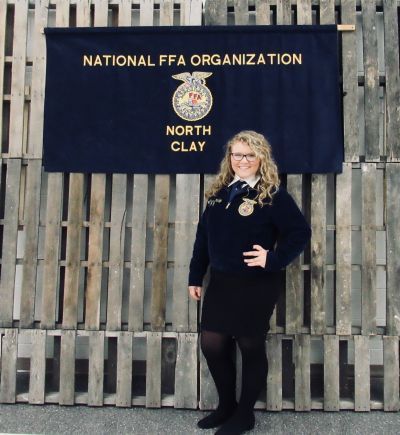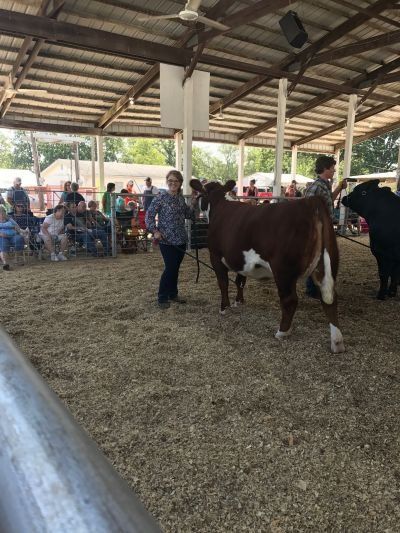Why I Chose Ag

This is a question I have received countless times while embarking on my college journey. Agriculture is one of the largest, most diverse industries in the United States and what makes me think family.
To me, it represents the hard workdays and long hours that those sitting in tractor give to provide for each of us. It makes me think of the incredible technology I could never understand that enables crops to be more efficient. It makes me think of the grocery stores and how lucky we are to have countless choices of different types of foods. When I hear the word agriculture, I instantly am taken back to the field with my dad in the tractor and reminded of running meals with my mom to the field.
I grew up on a small grain and cattle farm in southern Illinois which led me to recognizing the importance of the agriculture industry. When I was younger, I knew that I did not want to come back to the farm but still wanted to be involved in the agriculture industry. In high school I was very involved in FFA and 4-H. FFA allowed me to interact with other students from various backgrounds coming together in one place to bond over agriculture. The opportunities being involved in these two organizations were endless and continue to benefit me years after I have graduated.
After I left the farm, to my surprise, I missed the countless hours spent assisting my dad working on always breaking equipment, cooking & delivering food during planting or harvest, and the countless hours stuck at my two older brother beck and call fixing fence or washing cows (please don’t tell my family, they will quickly call me back to get my hands dirty). This fueled my passion to be able to find the place in the agriculture industry I could make my impact.

Rewind 3 years ago, I was a senior in high school trying to decide what felt like the biggest decisions of my life at that time. The long-term goal was to be an attorney, however, choosing the steps to getting there was a daunting task. After exploring traditional options such as political science, I did not feel like that’s where my academic career would benefit me the most. Then I found just what I was looking for at the University of Illinois Urbana-Champaign in the College of Agriculture, Consumer & Environmental Science. In May of 2022, I graduated from the University of Illinois Urbana-Champaign after studying Agricultural Consumer Economics with a concentration in public policy and law. Yes, it is a bit of a mouth full.
Once my classes began, I knew this is where I was supposed to be. After sitting in classes reviewing the Farm Bill, dissecting various environmental or food law cases and analyzing the agriculture industry from a different perspective, I knew that this is where and how I can contribute. As I now prepare for my law school journey, I continue to expand my knowledge of the agriculture industry and policy affecting it.
The choice to choose ag as my major has shown me where I can make an impact and aid in giving farmers a voice. My career will take me places other than mending the fence and holding tools but allow me to support my family and farmers everywhere while they’re doing the sweaty stuff. It is where I belong, surrounded by people pushing me to succeed, just like a family.







